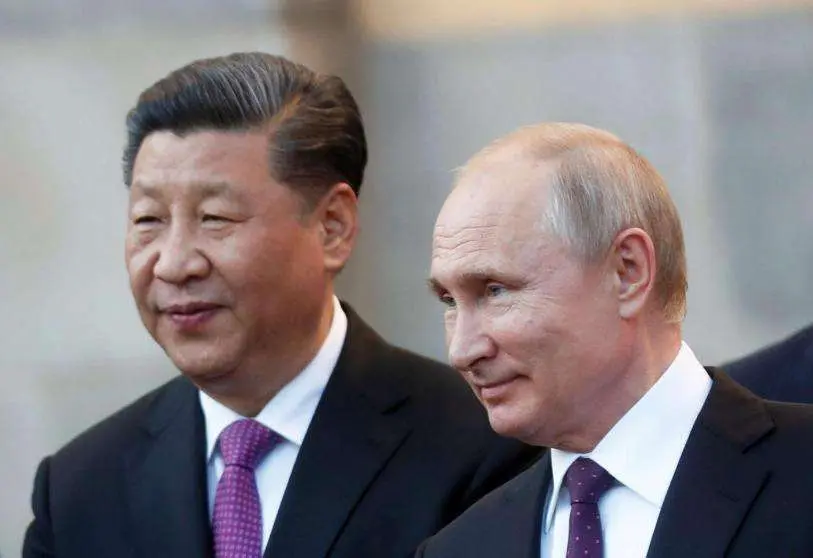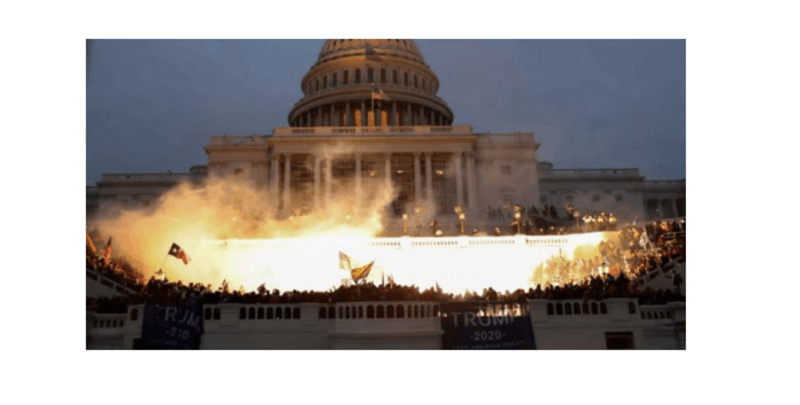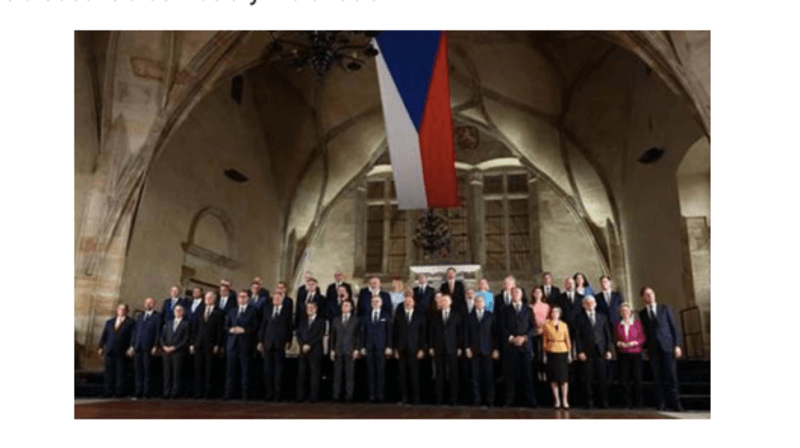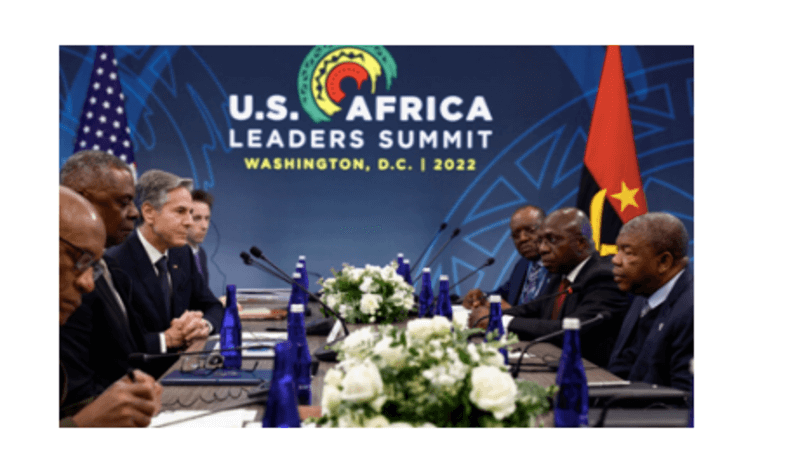In a multipolar world, it is not the strongest who will survive, but those who know how to adapt best

This document is a copy of the original published by the Spanish Institute for Strategic Studies at the following link.
The transition from multilateralism to the new multipolar order places all international actors before a dilemma. On the one hand, it seems necessary to make the positions and strategies that were valid in the previous situation more flexible in order to reposition itself according to the new rules of the game. The other option would be to try to maintain the previous status at all costs. According to the British naturalist Charles Darwin, the most intelligent decision would be to adapt to the new global scenario, because the change of era is inevitable. Renew or die.
"It is not the strongest species that survive but those that
adapt best to change".
C. Darwin. 1859
Two years ago now, at the end of 2020, we published in this forum of the Spanish Institute for Strategic Studies an analysis in which, under the suggestive title of "Save Private West: the decline of the West"1, we highlighted the difficulties currently faced by the international order based on rules, an expression of the preponderance of the model of global governance according to Western parameters, in force since the end of the Second World War. At the time, NATO and the European Union, the two major Western institutions, were in turmoil. The former, still suffering from a long-standing strategic disorientation in search of its raison d'être following the demise of the USSR; and the EU, stunned by the exit of the UK and internal disagreements over how to deal with the security challenges posed by unsettled border territories from the Sahel to its eastern flank, via the Mediterranean basin.
The revisionist powers were already questioning the validity of a system designed in the image of the US. The People's Republic of China was already challenging American commercial and technological hegemony with its New Silk Road and technological leadership initiatives. And Russia was doing so by force of assertiveness in its immediate surroundings, in Georgia and Belarus, Crimea and the Donbas, and right over in the Middle East through its decisive intervention in Syria, and even on the southern shores of the Mediterranean, in Libya. This is not to mention the ever-present threat of jihadist terrorism which, although it seemed to have relegated its attacks on European soil, was continuing to expand on the African continent. At the time, the entire panorama was being further complicated by a pandemic that went on to paralyse the world in a previously unseen way. Against this backdrop of uncertainty, the arrival of the newly elected Biden Administration was watched with anticipation for various reasons.
The complex scenario of the late 2020s has changed little and the protagonists are still the same. However, given that these two years have witnessed events of such significance, a new approach to the drift from the previous multilateralism towards the new polycentric order is worth pondering. In this brief lapse of time, the Taliban have regained power in Kabul after a withdrawal by the US and its allies that deserves to be described as nothing less than chaotic, dealing a major blow to the credibility of the US as a main supporter of different countries in other regions of the world. Russia has unleashed an all-out war against Ukraine which, while it has not brought it a quick and outright victory on the ground, has not ostracised it internationally. On the contrary, it is a war that is bringing about global realignments that do not favour Western democracies in the slightest.
And as if all this were not significant enough, the controversial visit of US House Speaker Nancy Pelosi to Taipei has been the penultimate twist in the extremely tense situation in the waters of the strait separating mainland China from Taiwan. These and other events, but above all the consequences of Russia's invasion of Ukraine, have put the final nail in the coffin of the old international order. The inevitable corollary is that it will have to be rebuilt, or perhaps an entirely new one designed.
The collision course on which the two great powers find themselves set has raised deep concerns among the other international players, unwilling guests in an economic and commercial, technological, cultural, geopolitical and even military tussle between the US and China that does not bode well. The stakes are high, and there is little or nothing to be gained if this confrontational dynamic continues. When two elephants fight, it is the grass that suffers.
"The (US) objective must be to manage the collision of old geopolitics and new challenges, to act with discipline in what is sought, and to build agreements or, better still, international institutions with sufficient consensus. To do all this, Washington will have to prioritise the establishment of a certain world order over promoting democracy abroad, while
working to shore up democracy at home".
R. Haass, 20222.
The unipolar moment and the Pax Americana that had brought the Cold War to a happy ending lasted barely a decade, the 1990s. The US then got bogged down in endless wars in Afghanistan and Iraq, suffered its financial crisis, elected Donald Trump as president, and made a dismal impression with the hasty withdrawal from Kabul in August 2021, all of which were harsh reality checks. At this lowest of moments for America's international prestige, one of the things the failure of Russia's invasion of Ukraine, launched on 24 February 2022, has provided is breathing space and an opportunity for the world's leading power to make amends for past mistakes and take advantage of the flank exposed by Moscow to reassert its leadership, at least among liberal democracies. With Russia occupied and weakened in the cul-de-sac into which it has led itself, the US can turn its attention to the challenge that is its real concern, the People's Republic of China (PRC). To do so, Washington must recognise that, despite its undeniable power and pre- eminence, it needs its traditional allies. There are many reasons for this, not least because the American colossus alone is unlikely to be able to successfully confront China. Neither unilateralism, much less isolationism, is an option for the world's leading power.
And there is already movement in this direction. The new US National Security Strategy published on 12 October 2022 is in many respects a continuation of its predecessor, signed by then President Donald Trump in 2017. The most obvious common element between the two strategies is the identification of the People's Republic of China as the greatest challenge to US hegemony. However, there are also considerable differences. A significant new aspect, for example, is a certain humility in recognising that it is no longer reasonable to expect the rest of the world to be constituted in the image of North America: "We do not, however, believe that governments and societies everywhere must be remade in America's image for us to be secure"3. Nonetheless, it also4 insists on the idea so often heard from President Biden that we are facing a battle between democracies and autocracies, an approach which, although accurate in its formulation, may be ineffective because it is not shared by the rest of the international community, or at least not by the majority, and because in any case it does not serve to avoid confrontation, but quite the opposite5.

Things are not looking any better domestically in the US. Political radicalisation, the questioning of the democratic system itself and of electoral results, and social fragmentation have led to alarm bells ringing among leading American thinkers. Ian Bremmer has even
described his country as "the most dysfunctional and politically divided member of the G7"6. Something must be done to get on top of this situation and adapt to the new global scenario before it is too late. Richard Haass proposes a more pragmatic, less maximalist view. In his opinion, it is more useful to prioritise a minimally consensual international order (based on respect for the integrity of states and collaboration vis-à-vis global challenges) over insistence on demanding democracy at all costs. Or better still, to heal and strengthen democracy within the Disunited States of America, rather than trying to impose it outside7.
"We have delegated our security to the US. The time has come for us to take more responsibility in terms of defence. The US provided our security, while China and Russia provided the basis for our prosperity:
this is a world that no longer exists".
J. Borrell, 20228.
The European security architecture, designed in Helsinki in 1975, has long since been largely superseded. One of its main signatories, the Soviet Union, no longer exists; the geopolitical balance has shifted substantially with the demise of the Warsaw Pact and the enlargement of the Atlantic Alliance; and if there was even the slightest hope of salvaging the means of some kind of cooperation with Russia, it was dashed with the invasion of Ukraine. A new security architecture needs to be built on the old continent, and the downside is that this cannot be done with Russia, as would be desirable, but precisely as a way to confront the aggression that Russia has unleashed.
NATO's new Strategic Concept, adopted in Madrid in June 2022, explicitly identifies Russia as a direct threat. At this Atlantic summit, the application for membership of two new allies, Sweden and Finland, were submitted. Germany has announced a decisive shift in its traditional defence policy, with a dramatic increase in military spending9. The Alliance has been strengthened and has regained its original raison d'être. Contrarily, the European drive for an identity as an actor responsible for its own security, as envisaged in the March 2022 Strategic Compass, clashes with the stark reality of Europe's deep dependence on military capabilities that only the US is able to provide10. Achieving a certain degree of military autonomy in the EU is still a long way off, which of course must not lead us to conclude that we should not persist in the attempt, and now more than ever.
It is not only in the field of security and defence that the EU faces the need to adapt or die. The challenge posed by the consequences of the war for cohesion and for the integrity of the European project highlights the obsolescence of the decision-making system in the Union's institutions. Unanimity among 27 states with such different and often disparate visions is almost impossible when competing interests are on the table. To this effect, the High Representative and Vice-President of the Commission, Josep Borrell, has stated that he believes that the Treaties need to be reformed11. Commission President Ursula von der Leyen readily acknowledges that it is time to convene a new convention for their review12. Such strong statements do not, however, mean that this is something that will happen tomorrow. The failure of previous initiatives, such as the unborn European Constitution, is still an open wound, and there is enormous fear of opening this Pandora's box.
The aggression against Ukraine has unleashed a wave of solidarity that has led some partners to propose 'fast-track' EU membership, an inordinate initiative given the specific circumstances in which the country currently finds itself, the aggravation this would cause other long-standing aspirants and the disruption that further enlargement would cause to the governance of European institutions. With the intention of seeking an alternative that would allow Ukraine and other neighbours to strengthen their relations with the Union without necessarily having to reach full membership, President Macron gave a speech to the European Parliament in May 2022, in which he proposed the creation of a European Political Community, "an area of cooperation in different fields in which states like Ukraine, which share the values of the EU, can take part, even if they are not part of it for the time being"13. The idea was welcomed by Chancellor Scholz in his speech at Charles University in Prague in August 202214, and was also taken up by Brussels. Exceeding the most optimistic of expectations, the proposal came to fruition just a few months later, with the first summit of the European Political Community held in the Czech capital in October of the same year. All European countries attended, including Ukraine, Armenia, Azerbaijan and Georgia, with Russia and Belarus as the only absentees.

It will not be easy for the EU to make far-reaching decisions as it adapts to the new global scenario. In addition to the difficulties inherent in its internal limitations, especially in the aforementioned unanimous decision-making process, external challenges come not only from revisionist rivals, but also from the American ally. Here is a good example. The White House will implement the Inflation Reduction Act (IRA), which will provide subsidies and tax breaks to both businesses and consumers to preferentially use local equipment and components, something that will be especially relevant in the development of green technologies, such as electric cars. The automotive industry, however, is hugely important in Europe. The IRA thereby causing an outcry in Brussels, as stated diplomatically but forcefully by the Commission President: "the new assertive industrial policy of our competitors requires a structural response"15. The EU, hitherto a vigorous guarantor of free trade, is now beginning to see protectionism as a tool that cannot be fully renounced in this scenario of Great Power Competition.
The recently held 20th Congress of the Chinese Communist Party has opted to strengthen Xi Jinping's power to almost forgotten limits and to focus on security issues, with an eye on Taiwan. Rather than opting for renewal, the decision is to become stronger, the Great Leap Backwards as Fernando Delage rightly pointed out in a recent Spanish Institute for Strategic Studies article16. Russia is on the same wavelength, with the fatal results that are evident today. Despite the Darwinian axiom of adapting to changing ecosystems, both Xi's China and Putin's Russia have opted for force rather than for adapting to the globalised world.
The so-called Global South17 prefers not to have to choose sides and to maintain the best possible relations with both. From the non-alignment of previous decades to the current multi-alignment18 as evidenced, for example, by the votes in the UN General Assembly on the Russian invasion of Ukraine. The hard core of those who are resolutely committed to their assaulted neighbour, expressed by means of military support and sanctions against Russia, include barely forty or so NATO and EU member states, the Pacific democracies and a few others. The rest have adopted an ambiguous stance, dipping in and out, allowing them to not only escape the energy restrictions that Europe is facing but even to make a good deal by acquiring Russian hydrocarbons at bargain prices.
The time has come to assess the situation pragmatically. Democracies must accept, with a bit of humility that the good old days of the Western rule-based world are over. The US could start by putting its house in order, and then move on to more shared leadership with its natural allies and open channels of dialogue and collaboration with systems which, while not entirely compliant with the liberal model, nonetheless share a desire to cohabit in a reasonably regulated world. In December 2021, Biden convened a 'Summit of Democracies' in a virtual format, which was attended by around 100 participants. More recently, in December 2022, a summit was held in Washington19 with the leaders of some fifty African countries, almost all of them, to try to counter China's growing presence on the continent. Obviously in both cases participants were not all full democracies, far from it, but if this attempt to keep as many channels open as possible fails, others will simply take the lead with the undisguised aim of confining democracies to a bottom rung of the international order.

The EU must take existential decisions sooner rather than later. Reforming the Treaties is inevitable, even if this raises logical fears. The Union's autonomy, not only in security and defence, cannot be reversed despite differing strategic sensitivities within it. It is not, of course, a question of going against the US - that would be a mistake - but of seeking our own way forward in trade and industry, the most obvious examples, and in other areas where interests on either side of the Atlantic do not converge. The best contribution Europe can make to its own security (and in the process, facilitate the US's turn towards the Indo-Pacific) is to strengthen its military capabilities, exercise a more executive military role and take charge of its troubled geographical environment.
Having lost the pre-eminence the Euro-Atlantic community has enjoyed in recent decades, it is time to come to terms with the new reality. The revisionist gamble, mainly by China, but also by Russia and Iran, can no longer be managed according to the criteria of Western hegemony or superiority. It's time to adapt or die... even if it is painful to do so.
Francisco José Dacoba Cerviño*
ET Brigadier General Director of the IEEE @fran_dacoba
References:
1 DACOBA CERVIÑO, Francisco J. Saving private West! Western decline, IEEE Analysis Document 41/2020.
https://www.ieee.es/Galerias/fichero/docs_analisis/2020/DIEEEA41_2020FRADAC_Occidente.pdf
2 "The Dangerous Decade. A Foreign Policy for a World in Crisis", by Richard Haass, OCT22, available at https://www.foreignaffairs.com/united-states/dangerous-decade-foreign-policy-world-crisis-richard-haass
3 THE WHITE HOUSE. US National Security Strategy 2022. 12 de octubre de 2022, p. 8. Disponible en: https://www.whitehouse.gov/wp-content/uploads/2022/10/Biden-Harris-Administrations-National-Security- Strategy-10.2022.pdf
3 US National Security Strategy 2022, p. 8, available at https://www.whitehouse.gov/wp- content/uploads/2022/10/Biden-Harris-Administrations-National-Security-Strategy-10.2022.pdf
4 A detailed study of the recently approved US Security Strategy can be found in "The US National Security Strategy 2022: The Turning Point of the Decisive Decade", by Mario Laborie, NOV22, available at https://www.ieee.es/Galerias/fichero/docs_opinion/2022/DIEEEO102_2022_MARLAB_Estrategia.pdf
5 This critical analysis of the axiom democracies versus autocracies can be found in the article The hollow order. Rebuilding an international system that works, by Philip Zelikow, JUL22, available at https://www.foreignaffairs.com/articles/world/2022-06-21/hollow-order-international-system
6 "The united states is the most politically divided and dysfunctional country in the G7" Ian Bremmer, MAY22, available at https://twitter.com/ianbremmer/status/1521317474418892800
7 "The Dangerous Decade. A Foreign Policy for a World in Crisis", by Richard Haass, OCT22, available at https://www.foreignaffairs.com/united-states/dangerous-decade-foreign-policy-world-crisis-richard-haass
8 EU Ambassadors Annual Conference 2022: Opening speech by High Representative Josep Borrell. Available at EU Ambassadors Annual Conference 2022: Opening speech by High Representative Josep Borrell | EEAS Website (europa.eu)
9 The Global Zeitenwende. How to Avoid a New Cold War in a Multipolar Era. Olaf Scholz, DIC22, available at Olaf Scholz: The Global Zeitenwende | Foreign Affairs
10 "I must be very honest, brutally honest with you, Europe isn't strong enough right now. We would be in trouble without the United States" Sanna Marin, Prime Minister of Finland, DIC22, available at https://www.dw.com/en/russia-ukraine-updates-finnish-pm-says-war-shows-europes-weakness/a- 63961110
11 "On the one hand, I am absolutely convinced of the need to reform the treaties and, on the other hand, I know how difficult it is". J. Borrell. JUL22, available at https://www.politicaexterior.com/articulo/josep- borrell-habriamos-sido-capaces-de-hacerlo-solos/
12 "It is time for a new Convention". Von der Leyen, SEP22, in https://www.abc.es/internacional/leyen- asegura-rusia-diezmada-tiempo-apaciguamiento-putin-20220914103951-nt.html
13 Macron proposes to create a "European political community". MAY22, available at https://www.europapress.es/internacional/noticia-macron-propone-crear-comunidad-politica-europea- cooperar-estados-no-miembros-ue-ucrania-20220509161852.html
14 Speech by Federal Chancellor Olaf Scholz at the Charles University in Prague on Monday, AUG2022, available at Speech Prague "Europe is our future" | Federal Government (bundesregierung.de)
15 Speech by President von der Leyen at the College of Europe in Bruges, DIC22, available at Speech by the President: College of Europe in Bruges (europa.eu)
16 DELAGE, Fernando. Xi Jinping's Great Leap Backwards: China after the 20th Communist Party Congress. IEEE Opinion Paper 97/2022. Available at Xi Jinping's Great Leap Backwards: China after the 20th Communist Party Congress (ieee.es)
17 For a more in-depth analysis of the positions of the countries in the Global South, see PARDO DE SANTAYANA, José. The war in Ukraine and the rebellion of the global South. IEEE Analysis Paper 63/2022. Available at https://www.ieee.es/Galerias/fichero/docs_analisis/2022/DIEEEA63_2022_JOSPAR_Ucrania.pdf
18 Sharinee L. Jagtiani & Sophia Wellek (2022) In the Shadow of Ukraine: India's Choices and Challenges, Survival, 64:3, 29-48, DOI: 10.1080/00396338.2022.2078045
19 US-Africa Leaders Summit: Forging a better partnership? DIC22, available at US-Africa Leaders Summit: Forging a better partnership? – DW – 12/12/2022








